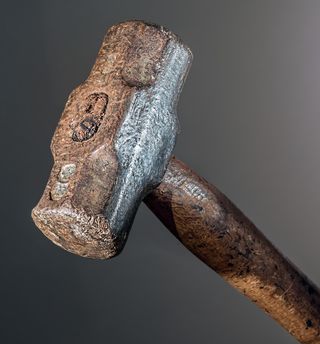Empathy
Power Blocks Empathy
Research shows that people with power have low levels of empathy.
Posted September 23, 2019

Lots of people are good at reading others, but not necessarily at sharing feelings.
Many years ago, I had a boss who knew exactly what to say at the right time that would get me to stay late, do extra work, even fudge the truth to cover for him. He knew me well enough not to ask me to lie outright, because I wouldn’t. But he got others to lie for him because he knew how to push their buttons.
He also made fun of me and belittled me for not knowing as much as he did. When I was overwhelmed and expressed my stress (from the work he kept adding on), he told me, “You need to prioritize.” All the bad things were my fault, and all the good things were to his credit.
From his position of power and control over my job, he used his ability to read me well enough to say things that were hurtful in order to influence and manipulate my behaviors, while at the same time he did not feel what I was feeling, which freed him from sharing my anxiety, stress, and fear.
Although I did not feel very good working for him, I thought that was just the way bosses trained. This experience, while it was at the time very painful, did me a favor. I was so miserable that I quit the job and went back to school, which changed my career path for the better. It wasn’t until I studied empathy that I realized the early experience I had with a powerful boss lacking any understanding of my feelings was my first close-up experience with power blocking empathy.
Research confirms that people in power have lower levels of empathy compared to those who lack power.1 Those in power are simply not that interested in those below them.2 They view themselves as different and above others.
The way people with power view their surroundings is different too. High-powered people attend less to their surroundings and those around them; they are more narrowly focused, typically on what they are most concerned with accomplishing, the task at hand.3 Overall, power diminishes perspective-taking.4 Perspective-taking, which is viewing the world through the eyes of others, is critical to empathy.
Empathy is a combination of two abilities: feeling or sharing what others are feeling, and understanding what those feelings mean. When a person starts crying, and it causes you to feel like crying, you are sharing a reaction or an experience. That is the first part of empathy.
Next, if you try and understand why the person is crying, that is the second part of empathy. We often confuse each separate part as empathy, but both sharing and understanding are required to experience empathy fully.
For people in power, it is the first part that is often missing. Their paying less attention to their surroundings and their tendency to not feel the emotions of others may help them succeed in gaining power and getting things done, but it does not make them empathic.
Their lack of concern about what others think leaves them disconnected from people. Those who work for them feel unheard, exploited, fearful, and often angry. What works for power does not work for empathy.
However, power can support good production. The tendency to stay focused on the task at hand and not be distracted by external factors can lead to getting things done. People in power can more easily make difficult decisions. By not attending to the emotions of everyone who works for them, they can more rationally make difficult decisions.
Power can also encourage innovation. Feeling powerful frees us from feeling inhibited by what others think, so we are more willing to try different things, go against the grain, even push boundaries.5 The problem is that less attention paid to surroundings, not sharing emotions, and not worrying about what others think may be helpful when in power, but at the same time, they are barriers to empathy.
So how do we benefit from power without the non-empathic lack of concern for others? It is important to distinguish those in power who do not feel what others are feeling from those in power who are able to turn off that ability to feel in order to make tough decisions and get things done.
With those who do not feel what others are feeling, there is a greater likelihood of finding a powerful person who lacks empathy and, as a result, is difficult to work for. With those who are able to turn the sharing of emotions on and off, there is a greater likelihood of finding a strong, innovative leader who can, when needed, share the feelings of others. The challenge is to develop both the skills of power and the skills of empathy—and to know when to use each and when not to.
References
1. van Kleef, G.A., Oveis, C., van der Löwe, I.,LuoKogan, A., Goetz, J., & Keltner, D. (2008). Power, distress, and compassion: Turning a blind eye to the suffering of others. Psychological Science, 19 (12), 1315-1322.
2. Hogeveen, J., Inzlicht, M. & Obhi, S.S. (2014). Power changes how the brain responds to others. Journal of Experimental Psychology, 143 (2), 755-762.
van Kleef, G. A., Oveis, C., Homan, A. C., van der Löwe, I. & Keltner, D. (2015). Power gets you high: The powerful are more inspired by themselves than by others. Social Psychological and Personality Science, 6 (4), 472–480.
3. Guinote, A. (2007b). Power and goal pursuit. Personality and Social Psychology Bulletin, 33, 1076-1087.
4. Galinsky, A.D., Magee, J.C., Inesi, M.E., & Gruenfeld, D.H. (2006). Power and perspectives not taken. Psychological Science, 17 (12), 1068-1074.
5. Lammers, J., Galinsky, A.D., Dubois, D., & Rucker, D.D. (2015). Power and morality. Current Opinion in Psychology, 6, 15-19.


